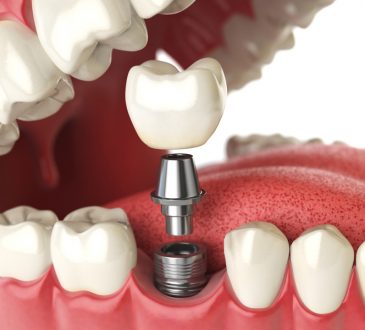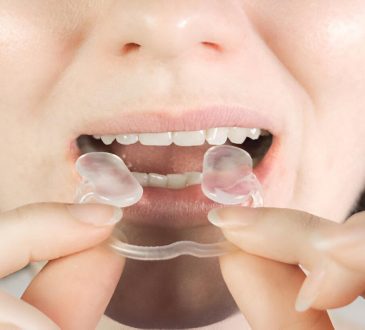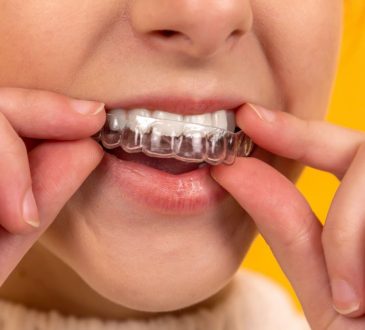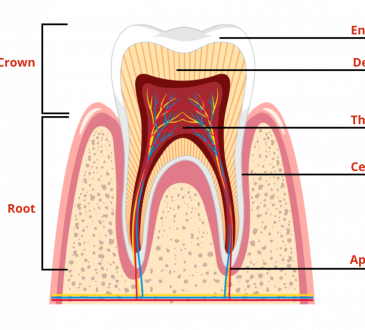
Need dental implants? Congratulations on your first step toward a confident smile! However, proper care is essential for lasting results. This guide provides expert recommendations from family dentists on maintaining your implants.
Maintaining your implants is crucial to avoid complications like infection or implant failure. Family dentists offer valuable advice on daily oral hygiene and regular check-ups to keep your dental implants functional and beautiful.
Explore the essentials of dental implant care and enjoy a radiant smile for years.
Why Dental Implant Care Is Important
Maintaining dental implants is essential for several reasons, chiefly their longevity and functionality. When properly cared for, dental implants can last a lifetime. However, neglecting them can lead to complications that may necessitate additional procedures. This is a financial burden and can affect your overall health and well-being.
The importance of dental implant care extends beyond the implants themselves. Good oral hygiene practices can prevent gum disease and other dental issues that could jeopardize the success of your implants. Healthy gums provide the foundation for dental implants, and any deterioration in gum health can lead to complications, including peri-implantitis, an inflammatory condition affecting the gums surrounding the implant.
Lastly, maintaining dental implants contributes to your overall self-esteem and quality of life. A well-maintained smile can significantly impact your social interactions and professional opportunities. Taking pride in your oral health reflects your confidence, making investing time and effort into proper dental care vital.
Understanding The Dental Implant Care Process

Understanding the dental implant care process is the first step to ensuring your implants remain in optimal condition. The journey begins at the dental office, where your dentist will discuss the best practices tailored to your unique situation. This may include personalized recommendations based on your oral health history, lifestyle, and specific dental concerns.
After the initial placement of your dental implants, there is a healing phase during which the implants fuse with the jawbone. During this period, adhering to all post-operative guidelines provided by your dentist is crucial. These guidelines typically include avoiding hard or sticky foods, managing pain and swelling, and using prescribed medications as instructed. These recommendations will set the groundwork for successfully integrating the implants into your mouth.
Once the healing process is complete, the focus shifts to long-term care. This includes establishing a consistent daily oral hygiene routine, regular dental visits, and monitoring for any signs of complications. Being proactive will help you catch potential issues early, ensuring your dental implants remain functional for years.
Daily Oral Hygiene Routine For Dental Implant Care
A robust daily oral hygiene routine is the cornerstone of dental implant care. This routine should include brushing at least twice daily with a soft-bristled toothbrush and fluoride toothpaste. Be sure to use gentle strokes to avoid damaging your gums or the implants. Pay special attention to the areas around the implants, as plaque accumulation can lead to gum disease and implant failure.
Flossing is another critical component of your daily oral hygiene routine. For those with dental implants, traditional floss may be less effective. Instead, consider using interdental brushes or floss designed specifically for implants. These tools can effectively clean the spaces between your implants and natural teeth, helping to prevent plaque buildup and gum irritation.
Additionally, incorporating an antimicrobial mouthwash into your routine can offer protection against bacteria. Rinsing with mouthwash can help reduce plaque formation and keep your mouth feeling fresh. Aim for a mouthwash that is alcohol-free and formulated explicitly for dental implant care. Remember, consistency is vital to ensuring your implants remain healthy and functional.
Dietary Considerations For Dental Implant Care
Your diet plays a significant role in maintaining the health of your dental implants. After receiving implants, avoiding hard, crunchy, or sticky foods for some time is advised to allow for proper healing. Foods like nuts, popcorn, and chewy candies can exert unnecessary pressure on your new implants, potentially leading to damage or discomfort.
Once you receive the green light from your dentist to resume a regular diet, focus on incorporating nutrient-rich foods that promote oral health. Foods high in calcium, vitamin D, and phosphorus are particularly beneficial for bone health, which is crucial for supporting your implants. Dairy products, leafy greens, and fish are excellent choices. Additionally, fruits and vegetables rich in vitamins and antioxidants can support gum health and overall immunity.
Limiting sugary foods and beverages is also wise, as these can contribute to plaque buildup and gum disease. Opt for water, herbal teas, or other low-sugar drinks instead. Keeping your diet balanced and nutritious will enhance oral health and contribute to overall well-being, ensuring dental implants serve you well for years.
Regular Dental Check-Ups And Professional Cleanings
Regular dental check-ups are vital for maintaining dental implants and overall oral health. Your family oral care dentist will monitor the condition of your implants, assess your oral hygiene efforts, and identify potential issues before they escalate. Typically, scheduling check-ups every six months is recommended, though your dentist may suggest more frequent visits based on your specific needs.
During these check-ups, your dentist will thoroughly examine your mouth, including X-rays if necessary, to ensure the implants are correctly integrated with the jawbone. This proactive approach allows for early problem detection, reducing the risk of complications that could jeopardize your implants. Additionally, your dentist can provide professional cleanings to remove plaque and tartar buildup that at-home care may not eliminate.
Professional cleanings are essential for individuals with dental implants, as specialized tools are often required for effective implant care. Your dental hygienist will use these tools to clean your implants safely, helping to ensure their longevity and support a healthy mouth. Regular cleanings are an essential aspect of your dental care routine.
Common Mistakes To Avoid In Dental Implant Care
Maintaining your dental implants is crucial for their longevity and functionality. Properly cared-for implants can last a lifetime. Neglecting them can lead to complications requiring additional procedures, which can be financially burdensome and impact your overall health.
Good oral hygiene is essential for the implants and preventing gum disease and other dental issues that could jeopardize their success. Healthy gums are the foundation for your implants, and deterioration in gum health can lead to complications like peri-implantitis.
Lastly, caring for your dental implants enhances your self-esteem and quality of life. A well-maintained smile positively impacts social interactions and professional opportunities, making investing time and effort into dental care vital.
Additional Tips For Maintaining Oral Health With Dental Implants
In addition to standard care practices, you can adopt several additional tips to enhance oral health with dental implants. First, consider using a water flosser as part of your daily routine. Water flossers can effectively clean around implants and between teeth, making removing debris and plaque that traditional floss may miss easier.
Another valuable tip is to avoid tobacco products. Smoking and chewing tobacco can significantly hinder healing and increase the risk of complications. If you are a smoker, discussing cessation options with your healthcare provider can provide you with the support needed to quit, ultimately benefiting your oral health and overall well-being.
Finally, stay informed about new developments in dental care and maintain open communication with your dentist. They can provide ongoing education and resources tailored to your needs. Participating in your dental health journey empowers you and equips you with the knowledge necessary to make informed decisions regarding your care.
Conclusion: Importance Of Following Dental Implant Care Recommendations
In conclusion, maintaining oral health with dental implants is a commitment that pays dividends in the long run. By adhering to the recommendations outlined by family dentists, you can significantly increase the lifespan and functionality of your implants. From daily hygiene practices and dietary considerations to regular check-ups and avoiding common pitfalls, each aspect of care contributes to the overall success of your dental implants.
Investing time and effort into proper dental implant care preserves your newfound smile and enhances your confidence and quality of life. By staying informed and proactive in your dental health journey, you can enjoy the benefits of your dental implants for many years to come.




